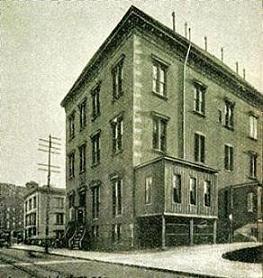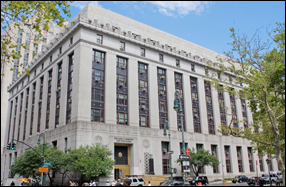Another Bite at the Apple: A Guide to Section 2255 Motions for Federal Prisoners
By Janice L. Bergmann
Today, the writ of habeas corpus is a federal remedy primarily used by state prisoners to challenge their conviction or sentence. Habeas corpus was also the primary post conviction remedy for federal prisoners until 1948, when Congress adopted Section 2255. Congress intended Section 2255 to supersede habeas corpus as the means by which federal prisoners could challenge the lawfulness of their incarceration, but nonetheless Aafford federal prisoners a remedy identical in scope to federal habeas corpus.
Another Bite at the Apple: A Guide to Section 2255 Motions for Federal Prisoners is the first book of its kind to focus on the special procedures and concerns that arise when a prisoner moves to Avacate, set aside, or correct a federal conviction or sentence under Section 2255.
This book is especially important now as Section 2255 proceedings have become significantly more complex with the enactment of the Antiterrorism and Effective Death Penalty Act, and federal courts continue to struggle with the interpretation of the AEDPA=s provisions. This book examines the various legal and practical questions that may be encountered in section 2255 proceedings, including those posed by the AEDPA. This book is an essential resource for anyone wanting an introductory education about section 2255, or experienced practitioner looking for an in-depth analysis. This important book is the perfect handbook for the in the litigation of noncapital section 2255 proceedings.
This book examines:
-An Overview of Section 2255 Proceedings, including the relationship of Section 2255 to other federal postconviction remedies
-Timing Considerations, including the statute of limitations
-Section 2255 Jurisdiction, including custody and mootness, and cognizable claims
-Obstacles to Relief, including retroactive application of Teague v. Lane and Fourth Amendment claims
-Proceedings Before the District Court, including motion, summary proceedings, relief and postjudgement motions
-The Appeal and Subsequent Motions, including perfecting the appeal and second or successive motions
-Finally, an appendix contains the full text of section 2255 and the rules governing 2255 proceedings.
Product Details: 5090118 Regular Price: $99.95 CJ Section Member Price: $84.95 ©2008 6 x 9 – Paperback 327 pages
________________________
Human Rights and the Alien Tort Statute Law, History and Analysis
by Peter Henner
This unique book addresses the legal interpretations and practical implications of the Alien Tort Statute (ATS), which has become the primary vehicle for international human rights litigation in United States courts in the last thirty years. It places the Alien Tort Statute in perspective, from its original enactment as a jurisdictional statute in 1789, through its evolution into a vehicle for human rights litigation. It includes in-depth analysis of legal decisions and describes the theoretical issues, practical considerations, and anticipated prospective development of the statute. It also examines the relationship between the Alien Tort Statute and two issues which have received particular attention during the Bush administration: the use of torture by United States officials and the practice of extraordinary rendition.
“Whether you are a trial lawyer representing plaintiffs or defendants in the expanding field of ATS litigation or a federal judge faced with deciding the complex jurisdictional and immunity questions which such litigation presents, you will want a copy of Peter Henner’s Human Rights and the Alien Tort Statute. In this readable, lucid and logically organized text, Peter Henner has covered it all from the history of the Alien Tort Statute’s enactment in 1789 to recent efforts to bring cases against the United States.”
Hon. Stewart F. Hancock, Jr.
Retired Associate Judge, New York State Court of Appeals
Product Details:
Regular Price: $109.95 Section Member Price: $87.95
©2009 6 x 9 – Paper 492 pages Product Code:
1620419 _________________________ Continue reading
 Criminal Law Library Blog
Criminal Law Library Blog









